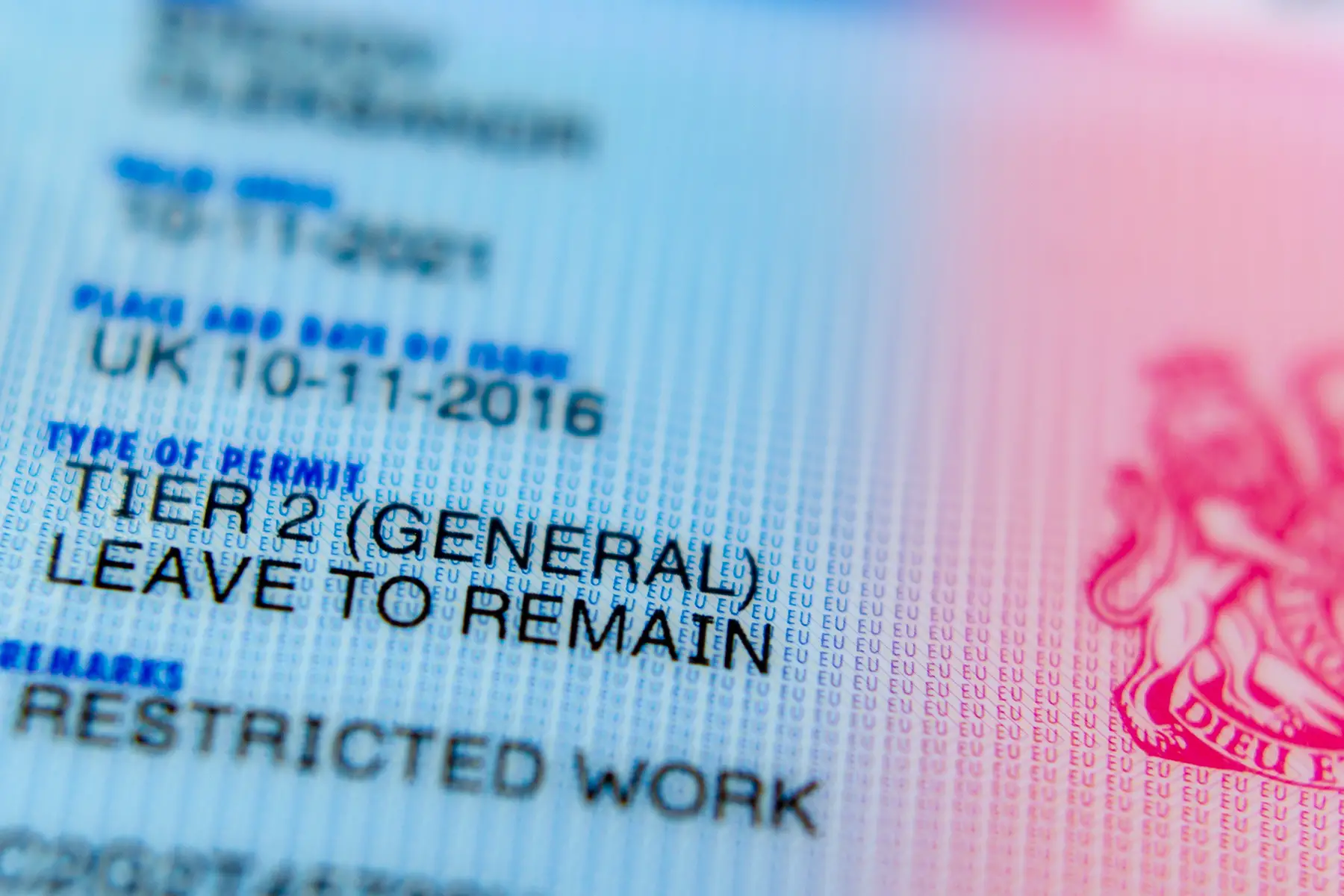The UK remains a very popular place to look for work, especially in London – a booming national and international business hub. While competition can be intense, particularly in popular fields, thorough research and preparation can help you identify roles that play to your skills and qualifications. Industries such as technology, healthcare, and engineering are actively seeking skilled workers, making the UK an attractive destination for international professionals.
You can read more about finding jobs in the UK in the following sections:
CV-Library
Looking for great work opportunities in the UK? Register your CV on CV-library, one of the UK’s largest online job boards. Get instant job alerts or search online to find roles across all industries and locations. Whatever your sector, you’ll find exciting new roles on CV-Library.
The job market in the UK
If you plan to look for a job in the UK, prepare by researching the job market before moving and setting realistic expectations. The UK has a highly educated workforce, meaning competition can be intense, particularly in certain industries.
However, the UK remains welcoming to foreign workers, with opportunities in sectors experiencing growth or skill shortages, such as healthcare, technology, and construction. Having a clear understanding of visa requirements and targeting industries in demand can help you navigate the job search successfully.

According to the Office for National Statistics (ONS), the overall unemployment rate in the UK was 4.3% in November 2024. This is a slight increase compared to the last few years.
London’s job market is the largest in the UK, as well as one of the top in Europe and worldwide. On a related note, economic growth is concentrated in London and the southeast. Unemployment rates remain higher in the north of England, Scotland, Wales, and Northern Ireland.
What jobs are in demand in the UK?
The UK’s main industries include:
- Wholesale and retail
- Healthcare and social work
- Administration
- Education
- Scientific and technical
- Manufacturing
- Hospitality
Skills shortages have been reported in a number of sectors including:
- Health and social work
- Construction
- Information and Communications Technology (ICT)
- Manufacturing
The biggest UK-based companies are:
- Unilever (consumer goods)
- AstraZeneca (pharmaceutical)
- Shell (oil and gas)
- Tesco (grocery stores)
- GlaxoSmithKline (pharmaceutical)
- HSBC (finance)
In addition to these, multinational companies with a strong presence in the UK include Amazon, Google, Microsoft, Siemens, and Toyota.
However, public sector organizations tend to be the biggest UK employers. The NHS, the British Army, and the Department for Work and Pensions (DWP) have almost 6 million employees combined as of June 2024.
Job vacancies for foreigners in the UK
The UK is a popular destination for expats from around the world, and foreign-born workers comprise approximately 18% of the workforce. This percentage has grown in recent years, driven by economic opportunities, education, and the UK’s status as a global business hub.

To attract international talent, the UK offers initiatives like the Skilled Worker Visa, which facilitates employment in high-demand sectors, and the Innovator Founder Visa, aimed at entrepreneurs with innovative business ideas. Additionally, post-Brexit immigration reforms prioritize skilled workers in key industries.
Job opportunities for foreign workers are prevalent in sectors experiencing labor shortages, such as healthcare, information technology, engineering, construction, and hospitality. Language skills are particularly valued in customer service, tourism, and global-facing roles within multinational companies.
Although the UK has strong labor protections, foreign workers may face challenges such as temporary contracts or disparities in pay compared to local workers. However, efforts to ensure equity and provide pathways for skilled migration underscore the UK’s commitment to maintaining a diverse and inclusive workforce.
How to find jobs in the UK
Expatica jobs in the UK
You can find suitable openings on the Expatica jobs board, which has a constantly updated list of jobs available in England, Scotland, Wales, and Northern Ireland.
Public job sites
The UK government’s Find a job, previously known as UniversalJobmatch, allows you to search for full- or part-time jobs in England, Scotland, and Wales.
If you’re looking for a job in Northern Ireland, there’s a separate website called JobApplyNI.

Job websites in the UK
General
You can browse thousands of full and part-time jobs, upload your CV and manage applications on websites such as CV-Library, which is the UK’s leading independent job board with nearly 200,000 live jobs across all sectors:
Specialist
- Caterer – hospitality, restaurants, hotels, pubs, bars, and catering
- Charityjob – charities
- Computer Weekly – IT
- CWJobs – IT
- Design Week– design, branding, copywriting, artwork, exhibitions, graphics, interiors, furniture, and packaging
- Exec Appointments – executive jobs
- Hays – management and professional level jobs
- Justengineers – engineering
- Madjobs – marketing and advertising
- Mandy – TV and film
- Music Jobs– all aspects of the music industry including performers, producers, teachers
- NHS Jobs – jobs in all sectors of the National Health Service throughout the UK, from medics and nurses, through administration to cleaning and services
- Prosple – graduate jobs
- Splashfind – top 100 UK specialist job sites
Recruitment agencies
Most recruitment agencies specialize in a particular sector like IT, retail, childcare, or secretarial. Some agencies are headhunters who work for large companies to recruit executives and professionals on their behalf. Others are temp agencies who can help you find temporary work in offices and retail, for example.
Look on the online phone book under ‘recruitment consultants’ or at Agency Central. You can also check out Expatica’s recruitment agency listings in our directory.
Embassies and foreign organizations
Check out opportunities at the foreign embassies and consulates across the UK. While most embassies and consulates are located in London, there are also some in Birmingham, Manchester, and Edinburgh. Typically, jobs with embassies will expect a high standard of both spoken and written English.

Newspapers
The UK’s newspapers are worth checking out to keep an eye on vacancies across England, Scotland, Wales, and Northern Ireland:
- The Guardian Jobs
- The Times
- The Telegraph Jobs
- Metro Jobs
- The Sun Jobs
- The Herald (Scotland-specific)
Make the first move: speculative applications
Have a look at company websites for available vacancies and also for information you can use in making a speculative application. You can find out background information about the company and its rivals, as well as the name of the right person to contact if you’re making a direct approach.
Look for the name of the person who’s responsible for making decisions about hiring or the budget, not the human resources or personnel office. If the name is not on the website, send an email or phone and ask.
Self-employment and freelancing in the UK
If you have the right to work in the UK, this includes the right to start your own business or register as a self-employed freelancer. You will need to check visa requirements as you may need to apply for a business visa.
If you start a business in the UK under its own trading name, you can choose whether to be a sole trader/unincorporated business or register the business as a limited company. Becoming a limited company means that you can employ yourself as a director and have your business income treated separately from your personal income.
Traineeships, internships, and volunteering in the UK
You can search for internships and placements on AIESEC (for students and recent graduates in the UK) or IAESTE (for students in science, engineering, and applied arts).
Internships can also be found on websites like:

For those aged between 17 and 30, you can find volunteer programs at the European Voluntary Service (EVS), where you work abroad for up to 12 months in exchange for board, food, insurance, and a small allowance. Concordia is another organization for volunteer opportunities. For holiday volunteering opportunities, check Workaway.
How do you apply for a job in the UK?
Once you’ve found a job in the UK, you need to prepare your application. If you get through to the interview stage you’ll need to know what to expect in a British job interview, and what to do – and not to do – during the interview.
UK job applications tend to take the form of either an application form (often available online) that includes a personal statement where you need to demonstrate that you meet the person specification or a request for a CV together with a covering letter (which should cover the same areas as a personal statement).
Interviews for UK jobs typically last between 30–60 minutes and you usually meet with 2 or 3 interviewers. Some interviews involve additional testing or tasks which will increase the overall interview time length.
Research the company ahead of the interview to get an idea of its values and work culture, and also to help prepare questions to ask. Dress and behave formally but try to stay relaxed and friendly.
If you are offered the job, the company will contact you by phone and in writing. They will also chase up your references. Typically you have to provide 2–3 of these as part of your application.
For more information, see our article on applying for a job in the UK, including information on British-style CVs and job interviews. It’s also worth trying out a resume building website such as Resume.io to make writing a CV quick and easy.
What are the requirements to find work in the UK?
1. Do you need a UK work visa?
If you’re neither a UK nor Irish citizen, you need an appropriate visa to live and work in the UK. This includes EU nationals since January 2021.
There are currently a number of work permits and visas foreigners can apply for:
- Skilled Worker Visa: for foreigners with a job offer in eligible roles from an approved UK employer
- Health and Care Worker Visa: a specialized visa for qualified medical professionals
- Innovator Founder Visa: for entrepreneurs with a new, innovative business idea endorsed by an approved body
- Global Talent Visa: for leaders or potential leaders in academia, arts, and tech sectors
- Temporary Work Visa (T5): for short-term employment, such as seasonal workers or charity workers
- Graduate Visa: for international students who have completed a degree in the UK, allowing them to stay and work for up to 2 years
2. What are the language requirements to work in the UK?
Being able to speak a language other than English gives you a big advantage over many British applicants when it comes to certain jobs in the UK. However, you’ll still need working level English skills to be able to get most UK-based jobs.
To get a UK work visa in the first place, you may need to prove your English language proficiency.

There is a shortage of language teachers in the UK. If you hold a university degree and can speak English well, you might be able to take a post-graduate course to allow you to teach your mother tongue in an English school or college. See the Department of Education’s teaching website for more information.
3. Can you transfer your qualifications to work in the UK?
You can find out how qualifications awarded in your home country relate to British qualifications through UK ENIC. The ENIC site also has a section with details on which professions are regulated in the UK, in other words, you need a minimum level of professional qualifications before you can practice them in the UK.
If you want to know if your professional qualifications are recognized in the UK, contact the relevant professional body. You should make sure any references or testimonials are translated into English.
4. You will need a tax and social security number
Once you start working and paying tax in the UK, whether employed or self-employed, you will be assigned a unique tax reference (UTR) number. This is a 10-digit number that is used in your dealings with the UK Inland Revenue.
You need to apply for a National Insurance (NI) Number before you start working in the UK. Your NI number is used for social security purposes in the UK and you will need it, for example, to claim benefits or a UK pension.
To apply for a NI number, you will need to ring the application phone line (number available here). You may initially receive a temporary NI number if you already have a job offer and are looking to start work immediately.
Financial support while looking for a job in the UK
You can claim Jobseeker’s Allowance (JSA) in the UK to support you while you’re looking for work, however you will need to have worked previously and made Class 1 National Insurance contributions in the last 2–3 years.

Skills training is available to help you build your career prospects and develop your employment skills. Each part of the UK (England, Scotland, Wales, and Northern Ireland) has its own careers service that runs courses and offers funding. Find out more on the UK government website.
Starting your job in the UK: important questions
It is likely that you will start off on a probation period in your new job. During this time, the length of notice regarding the termination of your contract may well be shorter. Job probation periods in the UK should not be longer than six months.
Your employer should enroll you for social security and will make contributions from your monthly salary that will entitle you to benefits and the UK state pension. In addition to this, you will be covered by employers’ liability insurance in the UK in the event of any work-based illnesses or injuries.
Depending on your employer, you may also get the chance to opt in on a company pension to top up your state pension benefit. Many UK employers also offer other types of perks such as private health insurance in the UK.
Useful resources
- Find a job – UK government job search portal
- Gov.uk working, jobs, and pensions – section of UK government website dealing with work and jobs











